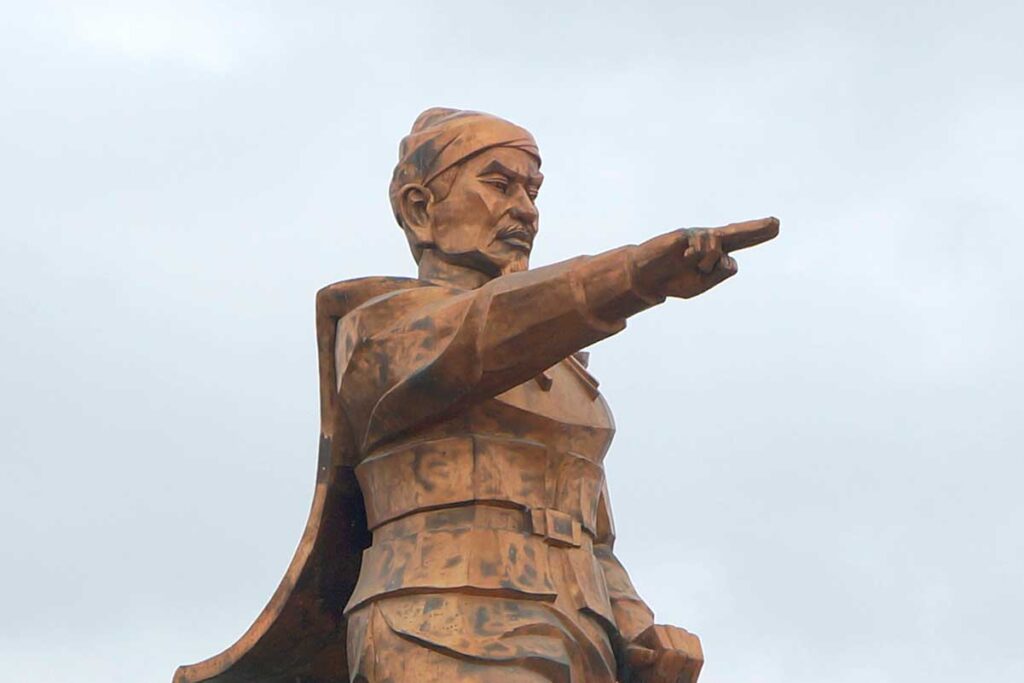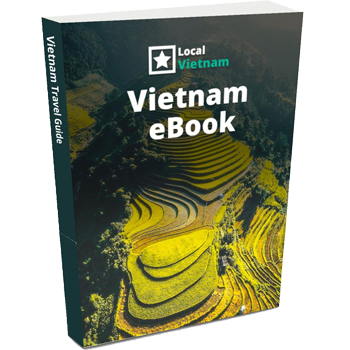Who was Ngo Quyen?
Ngo Quyen was a 10th-century general and leader, born in 897 in what is now Ha Tay, part of modern-day Hanoi. He is best known for his decisive victory over Chinese forces at the Battle of Bach Dang River in 938, where he used a clever river ambush to destroy the invading fleet. Following this historic triumph, Ngo Quyen declared Vietnam’s independence and became king, effectively ending more than a millennium of Chinese domination.
He is remembered as a national hero and the founder of Vietnam’s first truly independent state. Today, his name is honored in school textbooks, street signs, and monuments throughout the country. For many Vietnamese, Ngo Quyen symbolizes strength, resilience, and the beginning of an independent national identity.
Life and Legacy – Key Events in Ngo Quyen’s Life
Early Life and Rise to Power (897–931)
Ngo Quyen was born in 897 in Duong Lam, a village near present-day Hanoi, into a noble military family. As a young man, he served under Duong Dinh Nghe, a powerful regional governor who resisted Chinese influence in northern Vietnam. Ngo Quyen strengthened his political ties by marrying Duong Dinh Nghe’s daughter, gradually gaining influence in both the military and local government.
Power Struggles and Chinese Invasion (931–937)
After Duong Dinh Nghe was assassinated by a rival named Kieu Cong Tien, Ngo Quyen launched a military campaign to avenge his former leader. Around the same time, the Southern Han Dynasty in China saw the chaos as an opportunity to reassert control over the region. As Chinese forces prepared to invade, Ngo Quyen consolidated power and began planning his defense.
Victory at the Battle of Bach Dang River (938)
In one of Vietnam’s most legendary battles, Ngo Quyen devised a brilliant strategy to defeat the invading Chinese navy. He ordered iron-tipped wooden stakes to be planted in the riverbed of the Bach Dang River, hidden beneath the water at high tide. After luring the Chinese fleet into the area, the tide fell, trapping their ships on the stakes. His forces attacked and destroyed the fleet, marking one of the greatest victories in Vietnamese history.
Becoming King and Establishing Independence (939–944)
Following the victory, Ngo Quyen declared Vietnam’s independence from China and crowned himself king. He established the Ngo Dynasty and chose Co Loa, the site of an ancient capital, as his political center. This moment marked the formal beginning of an independent Vietnamese state after over 1,000 years of foreign domination.
Death and Legacy (944 and beyond)
Ngo Quyen died in 944, only a few years after founding the dynasty. Although internal struggles weakened his successors, his victory at Bach Dang remained a powerful symbol of resistance and national pride. Later leaders and dynasties would look to Ngo Quyen as the man who first reclaimed Vietnam’s sovereignty and laid the foundation for centuries of self-rule.
Ngo Quyen in Vietnam today
Ngo Quyen’s victory and leadership are still honored across Vietnam today, from historical sites to street names and public statues. Here’s where you can encounter his legacy.
Ngo Quyen Temple in Duong Lam Ancient Village
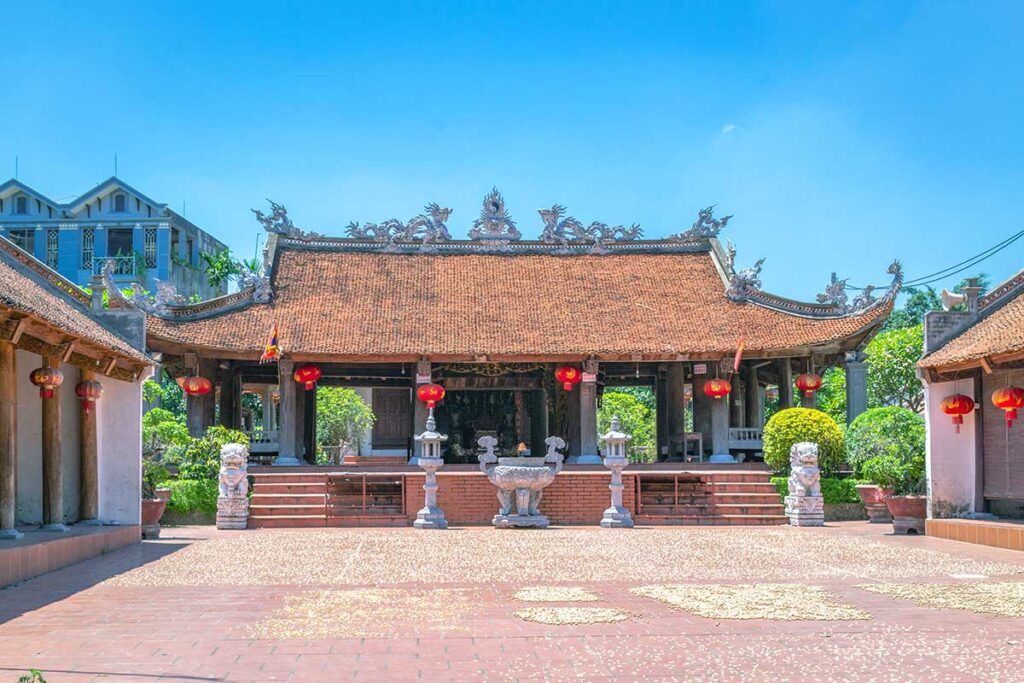
Located in Duong Lam, his ancestral village about 45 km from Hanoi, this temple complex is dedicated to Ngo Quyen and set within the popular Duong Lam Ancient Village heritage site. The temple is perched on Cam Hill and offers a quiet place for reflection, surrounded by trees and traditional architecture. It’s a meaningful stop for Vietnamese history buffs and often included in cultural day trips from the capital.
Statue and Park in Hai Phong (Bach Dang River)
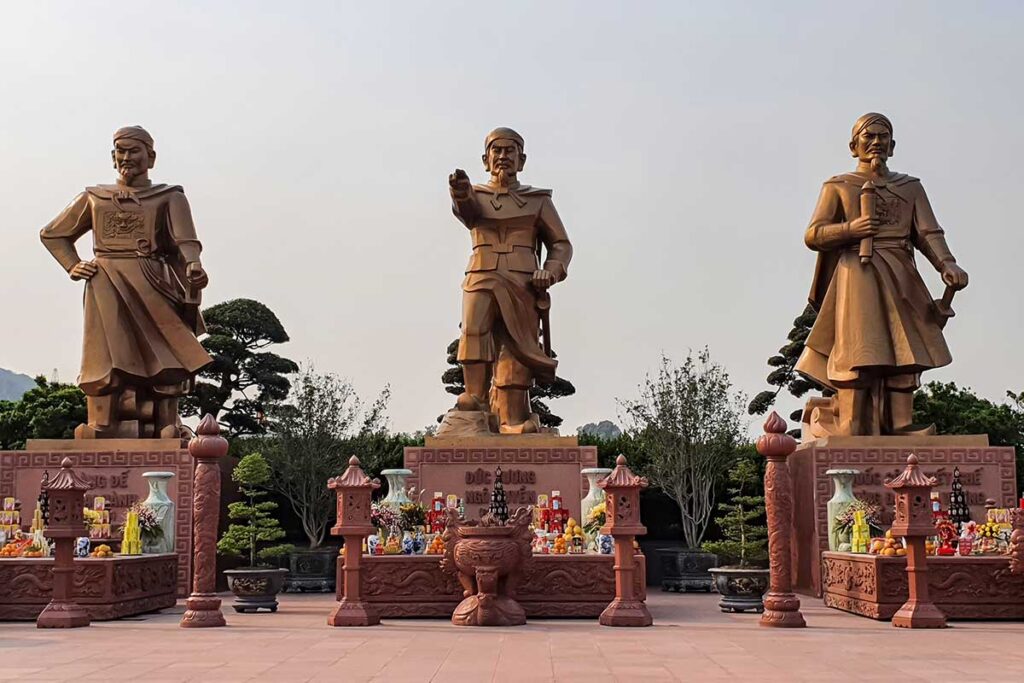
A large bronze statue of Ngo Quyen stands near the Bach Dang River in Hai Phong, close to the site of his famous naval victory. The surrounding park includes monuments, walking paths, and interpretive signage that recounts the battle tactics. The site is often visited during national holidays and school excursions, especially on Vietnamese Independence Day.
Streets and schools named after him
“Ngo Quyen” is one of the most common street names in Vietnam, found in nearly every major city, including Hanoi, Da Nang, and Ho Chi Minh City. He also lends his name to schools, parks, and public buildings—most notably the Ngo Quyen District in Hai Phong. These everyday reminders reflect his ongoing significance in Vietnamese national identity.
Museums Featuring Ngo Quyen
The Vietnam National Museum of History in Hanoi includes displays on Ngo Quyen’s life, the Ngo Dynasty, and the Battle of Bach Dang. You’ll find artifacts, maps, and historical timelines that help place his achievements in context.
In the Hai Phong–Quang Ninh region, the small Bach Dang Victory Museum (also known locally as the Bach Dang Giang relic site) focuses more specifically on the naval battle and the battlefield’s geography. He is also frequently referenced in broader military history exhibitions throughout the country.
Bach Dang River Historical Site
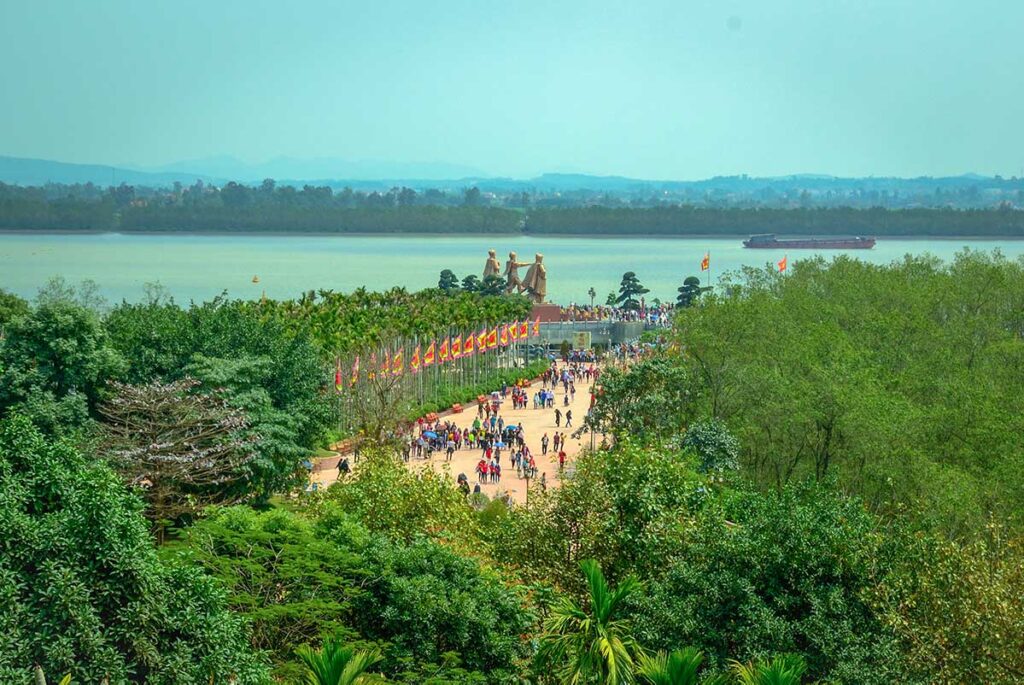
Near Uong Bi and Hai Phong, this riverside area is believed to be the exact site where Ngo Quyen planted iron-tipped stakes to trap the Chinese fleet. Some stake replicas are still displayed along the shore, along with statues and commemorative plaques.
The area is popular with student groups and domestic tourists and is often visited in combination with trips to Yen Tu Pagoda or Ha Long Bay, both nearby. While modest in scale, the site holds deep symbolic meaning for Vietnamese visitors.
Other legendary figures in Vietnamese history
Ngo Quyen’s victory in 938 marked a turning point in Vietnamese history, but many others followed in his path of leadership and resistance. Meet more national icons below:
- Ly Thai To – Founder of the Ly Dynasty and the emperor who moved the capital to Thang Long, laying the foundation for centuries of independent rule.
- The Trung Sisters – Fearless warriors who led a major uprising against Chinese occupation nearly 900 years before Ngo Quyen’s reign.
- Tran Hung Dao – Defeated Mongol invaders in three major battles, becoming one of Vietnam’s most admired military leaders.
- Ho Chi Minh – Guided Vietnam’s struggle for independence in the 20th century and founded the modern state.
- General Vo Nguyen Giap – A strategic mastermind behind Vietnam’s success in both the First Indochina War and the Vietnam War.
➤ Explore more in our full guide: Famous Vietnamese People
